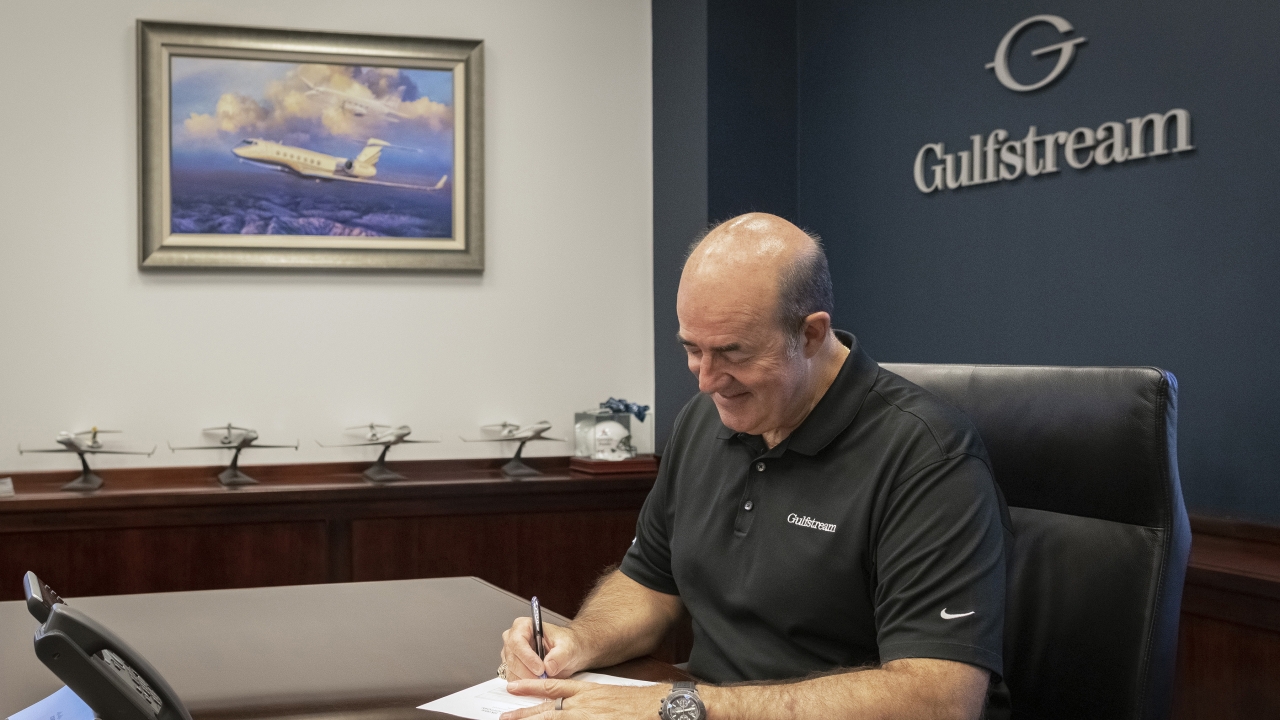Gulfstream signs ‘Clean Skies For Tomorrow’
Gulfstream has signed the World Economic Forum's ‘Clean Skies For Tomorrow’ 2030 ambition statement.

This builds on the company’s commitment to sustainability leadership in aviation. Gulfstream is the first business aircraft manufacturer to sign the ambition statement and has long been a leader in the use of sustainable aviation fuel (SAF).
Developed by the Clean Skies for Tomorrow Coalition Steering Committee, the ambition statement is a declaration of intent to accelerate the supply and use of SAF technologies to reach 10% of global jet aviation fuel supply by 2030.
“For more than 60 years, Gulfstream has moved business aviation forward, setting the standards for performance, innovation, safety and comfort,” said Mark Burns, president of Gulfstream. “The Clean Skies for Tomorrow 2030 Ambition Statement is a call to action to grow the supply and use of SAF. We are committed to continuing to use and promote SAF. We hope that our signing and focus on this ambitious goal will be the first of many more manufacturers to follow.”
Gulfstream’s focus on sustainability expands beyond SAF and includes modernisation of manufacturing and servicing facilities. The company has focused its sustainability efforts around three priority areas: energy and emissions; operations and culture; and learning.
Since 2016, Gulfstream has purchased more than 1.4 million gallons of SAF and flown more than 1.5 million nautical miles on SAF. In July 2021, Gulfstream became the first company to earn the National Aeronautic Association's Sustainable Wings certification, which recognizes speed records set using SAF.
Gulfstream signed a multiyear purchase agreement to use SAF in 2015, the first of its kind in business aviation; the agreement was extended in 2020. Since March 2016, Gulfstream has used SAF for its Savannah-based fleet, which comprises corporate, demonstration, completion, Customer Support and flight test aircraft. Gulfstream recently set two new city pair records with its new flagship G700 using a 30/70 blend of SAF. Per gallon, SAF has at least a 60% smaller carbon footprint on a lifecycle basis than conventional jet fuel.
Stay up to date
Subscribe to the free Times Aerospace newsletter and receive the latest content every week. We'll never share your email address.

